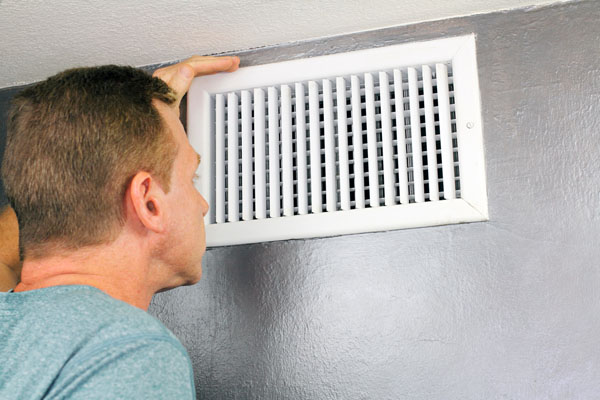Do I Save Energy If My Wall Vents Are Open Or Closed?

Homeowners are always on the lookout for ways to save on heating and cooling costs. One energy-saving belief that homeowners have is to close vents in unoccupied rooms. The reason behind this is quite simple: they believe that if they keep the vents closed, the air will simply redirect where it is required. As such, they think that they are using the conditioned air only where it is necessary. While this might seem reasonable enough, it does not actually save money. Instead, it not only costs the same or even more in terms of energy consumption. However, it also damages the HVAC system over the long term.
Reasons To Avoid Closing Registers For Temperature Control
Contents
In this article, we discuss why you should keep your HVAC air vents open. Also, we discuss some useful tips on how you can truly save energy with the use of HVAC zoned solutions.
Why You Should Keep HVAC Registers Open
The HVAC system is a carefully designed machine that does a full service to keep your home comfortable. If you mess with this design, you might cause issues that may be harmful to the system. Understanding how your HVAC system works will go a long way to ensure that you use it correctly.
How Does HVAC Ventilation Work?
Homes with forced-air HVAC equipment are likely to have a system that uses filtered air. The home is designed as a closed structure and as such, there will be no natural movement in indoor air unless an external force is applied. This external force (usually a fan) is used to move and distribute air indoors. An HVAC system then pushes the air to the condenser coils or past the heating component to produce either cool air or heated air before distributing it to different areas.
HVAC systems typically have either a fixed motor or a variable motor. A fixed motor runs at a steady rate even if the air pressure indoors changes. A variable motor automatically adjusts when it senses the pressure change. Fixed motors are generally cheaper, featuring an uncomplicated set of components. A system that uses a fixed motor works harder to process and distribute air through an enclosed space.
Why We Do Not Recommend Closing Your Air Registers
Your HVAC system is not equipped with the type of artificial intelligence that can detect whether or not air vents are open. As such, the system will continue to consume the same amount of energy and produce the same volume of warm or cool air. It will simply keep running on the thermostat setting, provided the setting is at a certain level. Since the system will keep consuming the same energy amount, you are not actually cutting on cost.
Closing A Vent Will Create Pressure Imbalance
The vents that you close to try and save energy are called the supply vents or registers. These are the vents through which warm or cool air is distributed to a room. Even if you close a supply vent, the return vent – the vent through which indoor air is pulled away from the room – will remain open. This is where the imbalance creeps in.
When the return register takes air away from a room, the movement of air results in lower pressure because no air is coming in from the supply vent to maintain the balance. Depressurization forces outdoor air through small holes, cracks, and gaps in the walls and ceilings. As a result, indoor air temperature is destabilized, causing it to increase or decrease. You will notice that indoor air will become warmer and colder than it should be. Since outdoor air is unfiltered, indoor air quality can also degrade.
Uneven Temperatures Throughout Your Home
HVAC systems have internal dampers that control how much air supply is in each room. This is important to ensure that the correct temperatures are maintained and that there is enough airflow volume. It does not matter how near or far a room is to the blower unit. If a register is closed, airflow balance and temperatures will be disrupted in the whole system and not just in the affected room or rooms. This imbalance will cause too much airflow to rooms and spaces closest to the blower and little airflow to the rooms and spaces that are farther away (even if these rooms have open vents).
Risk Of Wear-And-Tear On Your HVAC System
When supply vents remain closed, static pressure increases in the supply ductwork. This increases the pressure in the blower, putting unnecessary strain on it. System blowers that operate under frequent stress are more likely to become damaged due to wear-and-tear, which decreases their lifespan.

Best Ways To Save On The Cost Of Heating And Cooling Your Home
The size of your HVAC equipment matches the size of your home and other factors. These factors include the location, its square footage, insulation, and more. The correct size of the HVAC system means that it is capable of cooling or heating the entire home. Closing the vents is equivalent to reducing space. If you close one or more vents, you will cause the HVAC system to work improperly.
HVAC Zone Control
To save money and still enjoy a comfortable temperature indoors, use an HVAC system that gives you zone temperature control. Zoning lets you group certain areas of your home into different zones. You could, for example, group the living room, den, and kitchen as one zone, and the bedrooms as another zone. With each zone, you can set your preferred temperature without affecting the temperature in the other zones. You could set one zone at a higher temperature setting and set another at a lower temperature setting, depending on what you prefer.
It is also possible to set your HVAC system to run at its minimum capacity so you save money. You can do this on days when weather conditions allow it. If you like, you could even use fans to circulate air indoors. You could also save on your home energy cost by using window treatments as insulation or buffer against heat or cold air outdoors.
Ductless Heating And Cooling
Lastly, consider installing a ductless HVAC system as a supplement to your existing central HVAC system. Ductless systems have zoned control that allow you to set specific temperatures at rooms that are frequently in use. A supplemental HVAC system will let you set the thermostat at a certain temperature so that it runs at the minimum capacity without sacrificing your comfort. If you want to learn more about how to save on energy costs with your HVAC system, talk to Miller Oil Company.
Call Miller Oil Company For All Of Your HVAC Requirements
Miller Oil Company is a leader in HVAC services throughout Hartford County, Connecticut. We offer affordable yet exceptional HVAC services from tune-ups to installations to repairs and maintenance. At Miller Oil Company, we deliver reliable and honest services that meet your needs and budget. We understand how important comfort and cost are to homeowners, and we want to make sure that we can use our expertise to meet our customer’s standards.
If you want to find out more about how to save on energy costs, call Miller Oil Company, and make an appointment today. Our NATE-certified technicians can offer in-home consultation at no cost. With Miller Oil Company, you can save without compromising your comfort.
Click here to contact us today or give us a call at (860) 745-0326 if you have any questions.
